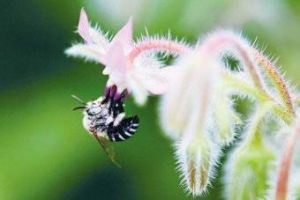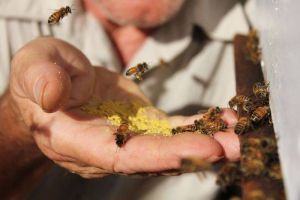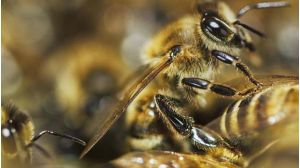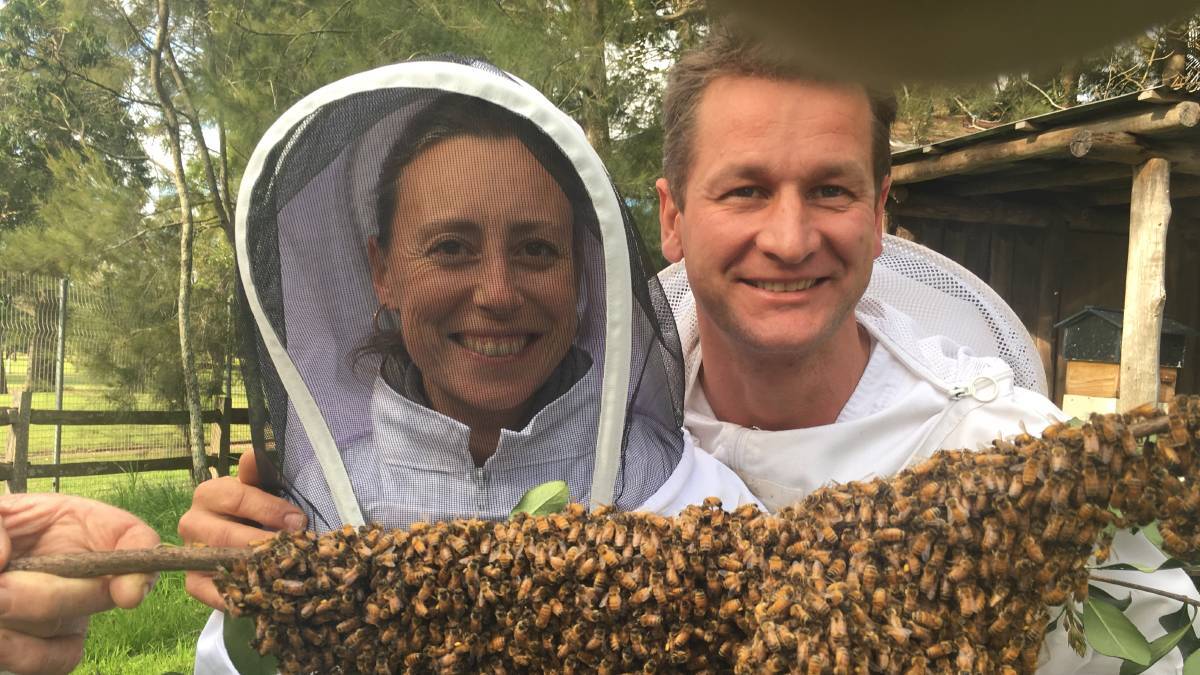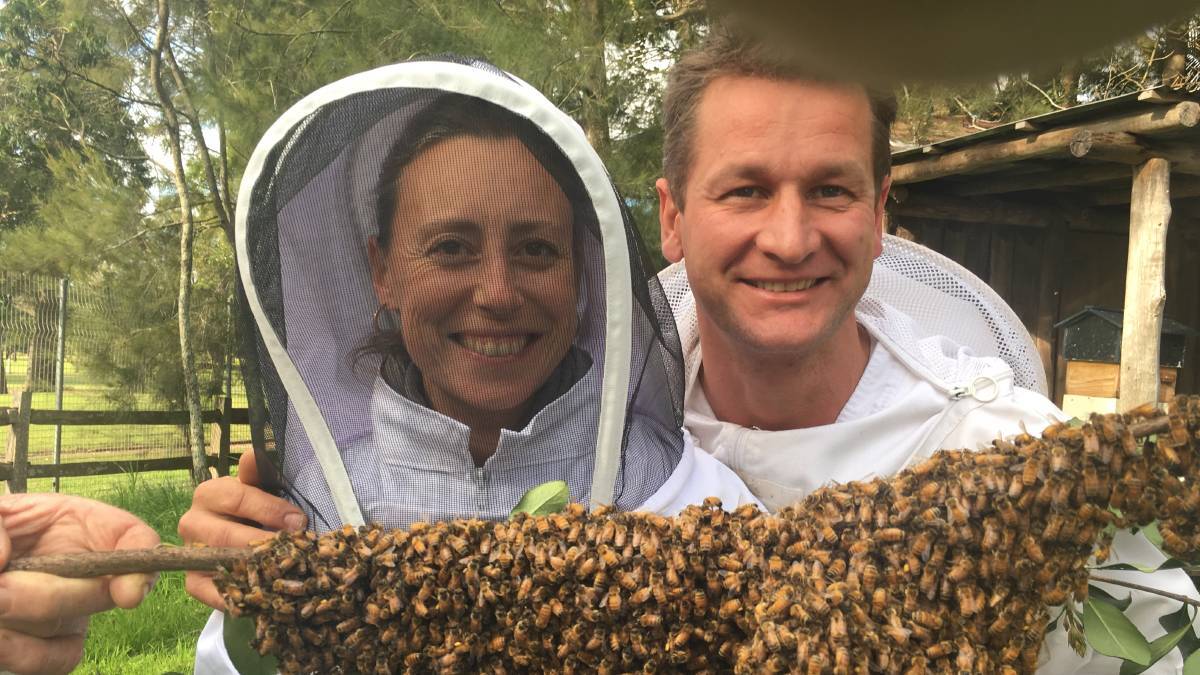
Ana Martin and her husband Sven on their bee farm at Johns River. Photo: supplied
ANA and Sven Martin have read enough about the threat to the world’s bee population to be concerned.
The couple decided to be proactive and do whatever they could to help protect the species and moved to a property at Johns River. They now run a business called Amber Drop Honey.
The business aims to rescue bee infestations from homes and farm properties, eliminating the need for pesticide management.
The rescued bees will help grow their cooperative project to boost population numbers and promote sustainable bee-keeping practices.
They have started a crowdfunding campaign and hope to raise $50,000 to set up a portable building on their farm. It would be used as a training facility for beekeepers, as well as a honey extracting and bottling plant.
If successful, Ana is confident it can be part of a solution to boost bee populations around the world.
The campaign has already received pledges of $21,882.
The funds will allow Ana and Sven to grow their business and rescue more bees, to have a place to train other people in beekeeping, to share the facility with other smaller beekeepers and to create a cooperative community.
They became members of the Central Coast Amateur Beekeepers association and their love of bees began to blossom.
They collect colonies of bees, rescuing them from walls and roofs of houses and other dwellings, ensuring bees can continue to thrive on the mid north coast.
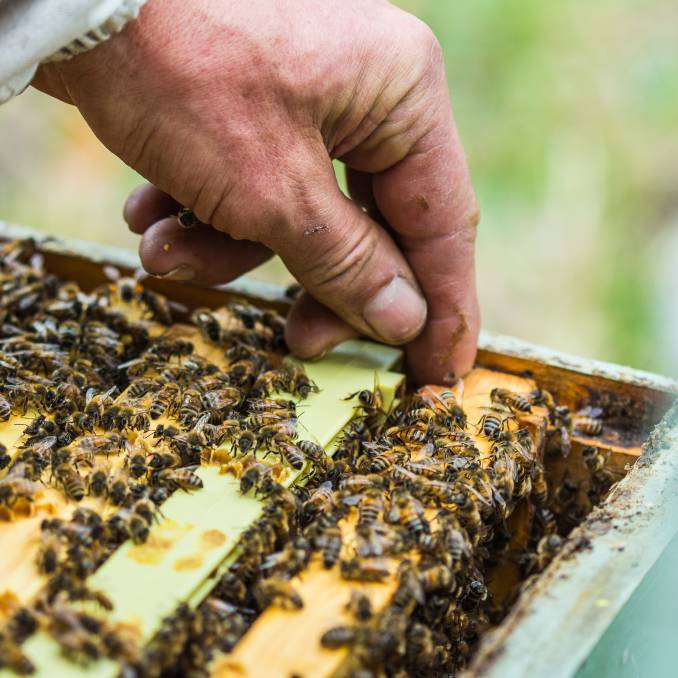
Thriving: This healthy bee colony is now thriving at Amber Drop Honey.
"If we reach our tipping point of $30,000 and can get this project off the ground, we feel that this model could be replicated all around the country," Ana said of their crowdfunding initiative.
"By supporting small scale beekeeping, bees get well looked after and customers can have better access to local raw honey.
"Sustainable businesses can help protect both the industry and the bees. It’s a win-win.
"Bees are crucial for pollination and we rely on them for a lot of the crops we eat so it is very important that we take steps now to protect our bees here in Australia," Ana said.
"We are still very lucky to not have had the very destructive Varroa mite here yet. But it’s a matter of “when” rather than “if” we get it here.
"Genetic diversification, strong colonies and a community of beekeepers working together could be the best way to protect ourselves."
The Australian Department of Agriculture and Water Resources developed a honey bee and pollination continuity strategy in 2011 in response to the Varroa mite threat.
The strategy aims to ‘have arrangements in place that allow the honey bee industry, crop industries responsive to honey bee pollination and governments to prepare for, and respond quickly and efficiently to, the establishment of Varroa in Australia so that effects on the honey bee industry and pollination of responsive crops are minimised’.
Ana said anyone can help protect our bee population by taking easy, affordable steps in their home.
"By planting flowers in their gardens and refusing to use chemicals like round-up people will be making a huge difference," she said.
"You can buy honey directly from local beekeepers or from stores that support them, and if they have unwanted bees they could try to find a beekeeper to rescue them, rather than exterminating them."
Matt Attard
JUNE 28 2018

